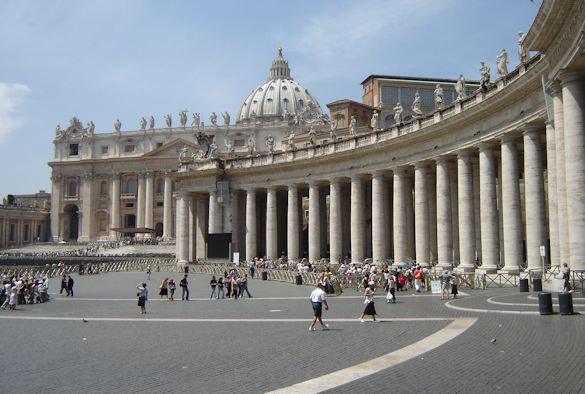David Pilgrim is Professor of Health and Social Policy in the Department of Sociology, Social Policy and Criminology. He is currently writing a book on the public policy challenge of paedophilia.
In principle, few people will take issue with the pope’s announcement of a Vatican tribunal to investigate allegations that historical child abuse in the Catholic Church was covered up by bishops. And now the Vatican has announced that a former envoy to the Dominican Republic will be tried on abuse and child pornography charges, it’s clear that Francis means business.
But whatever the outcome of that trial or others yet to come, the tribunal’s credibility will inevitably be challenged. And the extent of the unfolding crisis in the church, both at the Vatican and around the world, has already signalled the trouble that lies ahead.
Pope Francis is trying to square a circle. If the Vatican holds people on the periphery of the church responsible (both individual perpetrators and local bishops), how can it also claim and retain its central authority? How can it aim to be completely transparent and at the same time limit the damage? How can it admit widespread immorality and still claim moral authority?
Inconveniently for the Vatican, exposing the heinous moral hypocrisy of child sexual abuse reopens a set of questions it would rather not answer about the ideological challenge of sexuality.
Opening the box
The church simply cannot claim moral authority to expose sexual abusers without accepting that its hypocrisy on sexuality is legion; after all, many members of the clergy are sexually active even though traditionally, Catholicism unremittingly proscribes abortion, pre-marital sex, divorce, masturbation and homosexuality.
And moves to deal with the crisis about child abuse by debarring gay clergy utterly miss the point, since it’s well established that gay men are no more likely to abuse children than men in the general population, and research into clerical abusers has generally found that their backgrounds and behaviour fit many of the same patterns as abusers more generally.
What’s clear is that the Catholic traditions of denial and suffering were in some dark quarters taken to almost sadomasochistic extremes. It is little surprising to find that child sexual abuse in the church has been woven in to more general findings about emotional and physical cruelty.
Given that many adults with a duty of care had total control over children in this tradition, it’s hardly surprising that that authority could become arbitrary and unaccountable. Given that many of the children for whom they were responsible had already been deemed morally, physically or psychologically defective, abusers could easily feel justified treating them as “moral dirt”, deserving of whatever they got from adults.
The church now needs to re-examine its ethical justifications for its own hallowed traditions. Blaming paedophiles in its midst does not deal with this wider problem of an ethos of harshness – and blaming “bad apples” at all is a big mistake.
Cut off
It was the structures of isolation set up by the church that enabled these apples to rot. Gender segregation and various ways of physically isolating children and staff from wider society meant that the disinfectant of sunlight was kept out.
And as has now been established in various cases and acknowledged by Francis himself, once abusers were identified, their colleagues and superiors were often complicit in covering up their crimes and enabling further ones. Church authorities suppressed evidence and moved offenders from place to place without handing them over to the police, instead bringing them into contact with potential victims.
In some Catholic countries, such as Ireland, the process also moved in the other direction, as police passed the buck back to the church and turned people trying to report offences away.
Any deeper analysis of culpability puts the church in the dock, not just the abusers, and Pope Francis will soon be struggling with the cruciform effect: however the Church alters its position, it is still in pain.
Any serious investigation will have to deal with patriarchy, and not just the absurdity of a 21st-century feudal authority presided over exclusively by men. Gender oppression is certainly embedded in the church, but we’re all too easily diverted from the power of age. It was adult power that was central to this scandal; cruel nuns, not just paedophile priests, have been exposed for terrible abuses of various kinds. The church now will have to face the consequences of its own oppressive traditions on to age, not just gender.
Finally, the matter of religious feudalism within a postmodern age will the context of this papal inquiry. Its very existence repeats a contradiction. Which should be prioritised – canon law or the rule of civil law in democracy?
The world will judge the Catholic Church from the outside. By investigating itself, it signals that it still expects its authority over its clergy’s wrongdoing to trump that of civil law. Secularists committed to the rule of law in civil society will of course disagree.
The Vatican is sending some of the right messages with this latest move, but facing all these challenges, the papal inquiry will itself now be the focus of interest. For all the damage that’s already been done, there’s simply no way to avoid what’s to come.
This article was originally published in `The Conversation’.
